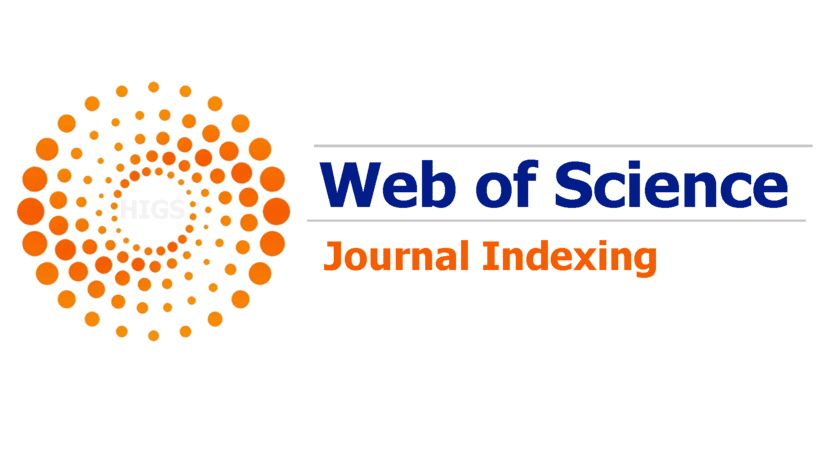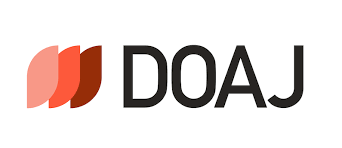Qualidade de vida e condições para se viver na pesca artesanal em Itanhaém-SP
DOI:
https://doi.org/10.20950/1678-2305.2018.260Palavras-chave:
bem-estar, indicadores, subjetividade, satisfação, pescaResumo
Novas contribuições í gestão pesqueira vêm sendo discutidas a partir de abordagens sobre bem-estar e qualidade de vida. No Brasil, a qualidade de vida (QV) e condições para se viver (QCV) foram avaliadas para comunidades rurais e aquicultores, com resultados objetivos que poderiam contribuir também í avaliação da atividade pesqueira de pequena escala. O presente trabalho buscou conhecer o distanciamento entre os olhares de pescadores e técnicos do município de Itanhaém/SP sobre a atividade pesqueira em quatro dimensões: social, ambiental, econômica e governança, a partir de uma abordagem qualiquantitativa. A dimensão governança foi a mais crítica e insatisfatória, implicando no menor indicador de qualidade de vida (IQV) e condições para se viver (IQLC), ressaltando a discussão sobre a necessidade de novos estudos sobre como os processos institucionais interferem no bem-estar da comunidade pesqueira da região.
Referências
ALVES, J.M.; SOUZA, F.N.S.; D’AGOSTINI, L.R. 2013 Qualidade do viver e do fazer: ambiente e desempenho ambiental. Rio de Janeiro: Garamond. 91p.
BEGOSSI, A. 2001 Mapping spots: fishing areas and territories in the Atlantic Forest Coast, Brazil. Regional Environmental Change, 2(1): 1-12. http://dx.doi.org/10.1007/s101130100022.
BEGOSSI, A. 2004 Ecologia de pescadores da Mata Atlí¢ntica e da Amazônia. São Paulo: Hucitec/Fapesp. 330p.
BELTON, B.; THILSTED, S.H. 2014 Fisheries in transition: food and nutrition security implications for the global South. Global Food Security, 3(1): 59-66. http://dx.doi.org/10.1016/j.gfs.2013.10.001.
BENÉ, C.; HERSOUG, B.; ALLISON, E.H. 2010 Not by rent alone: analyzing the pro-poor functions of small-scale fisheries in developing countries. Development Policy Review, 28(3): 325-358. http://dx.doi.org/10.1111/j.1467-7679.2010.00486.x.
CAMFIELD, L. 2006 The why and how of understanding ‘subjective’ well-being: exploratory work by the WeD group in four developing countries. Bath: University of Bath. p. 50. WeD Working Paper 26.
CARDOSO, E.S. 2001 Pescadores artesanais: natureza, território e movimento social. São Paulo. 143f. (Dissertação de Doutorado. USP). Available from: <radio.faced.ufba.br>. Access on: 12 may 2016.
CARPENTER, S.; WALKER, B.; ANDERIES, M.; ABEL, N. 2001 From metaphor to measurement: Resilience of what to what? Ecosystems, 4(8): 765-781. http://dx.doi.org/10.1007/s10021-001-0045-9.
COULTHARD, S. 2012 Can We Be Both Resilient and Well, and What Choices Do People Have? Incorporating Agency into the Resilience Debate from a Fisheries Perspective. Ecology and Society, 17(1): 1-4.http://dx.doi.org/10.5751/ES-04483-170104.
COULTHARD, S.; BRITTON, E. 2013 Assessing the social wellbeing of Nothern Ireland’s fishing society using a three-dimensional approach. Marine Policy, 37(1): 28-36.
COULTHARD, S.; JOHNSON, D.; MCGREGOR, J.A. 2011 Poverty, sustainability and human wellbeing. A social wellbeing approach to the global fisheries crisis. Global Environmental Change, 21(2): 453-463.
COULTHARD, S.; PARANAMANA, N.; SANDARUWAN, L.; MANIMOHAN, R.; MAYA, R.; AMARASINGHE, O.; KORALGAMA, D.; BRITTON, E.C.; BENE, J.; MCGREGOR, A.; POUW, N.; ABUNGE, C.; MBATHA, P.; RAMACHANDRAN, R.; RAMACHANDRAN, P.; DAW, T. 2015. Exploring wellbeing in fishing communities (South Asia), Methods handbook [online] URL: <https://www.researchgate.
net/profile/Sarah_Coulthard>.
D’AGOSTINI, L.R.; FANTINI, A.C. 2005 Medida da convergência de prioridades em planejamento participativo: Indicador de Sustentabilidade em Sistemas de Interesse í ISSI. Revista de Economia e Sociologia Rural, 43: 3.
D’AGOSTINI, L.R.; FANTINI, A.C. 2008 Quality of life and quality of living conditions in rural areas: distinctively perceived and quantitatively distinguished. Social Indicators Research, 89(3): 487-499. http://dx.doi.org/10.1007/s11205-008-9245-4.
DIAS-NETO, J. 2003 Gestão do uso dos recursos pesqueiros marinhos no
Brasil. Brasília: IBAMA. 242p.
FABINYI, M.; FOALE, S.; MACINTYRE, M. FABINY, M.; FOALE, S.; MACINTYRE, M. 2013 Managing inequality or managing stocks? An ethnographic perspective on the governance of small-scale fisheries. Fish and Fisheries, 16(3): 471-485. http://dx.doi.org/10.1111/faf.12069.
FAO í Food and Agriculture Organization of the United Nations 2012 The State of World Fisheries and Aquaculture. Rome: FAO.
FAO í Food and Agriculture Organization of the United Nations 2014 The State of World Fisheries and Aquaculture. Opportunities and chalenges. Rome: FAO. 215p.
FOLKE, C.; COLDING, J.; BERKES, F. 2003 Synthesis: building resilience and adaptive capacity in social-ecological systems. In: BERKES, F.; COLDING, J.; FOLKE, C. (Eds.). Navigating social-ecological systems: building resilience for complexity and change. Cambridge:
Cambridge University Press. p. 352-387.
GRAí"¡A-LOPES, R.; TOMÁS, A.R.G.; TUTUI, S.L.S.; SEVERINO RODRIGUES, E.; PUZZI, A. 2002 Fauna Acompanhante da Pesca Camaroeira no Litoral do Estado de São Paulo, Brasil. Boletim do
Instituto de Pesca, 28(2): 173-188.
JOHNSON, D.; PÁLSSON, K.S. 2015 Governability and its discontents in the fishery of the Lake Winnipeg since the late 160s: The view from Gimli. In: JENTOFT, S.; CHUENPAGDEE (Eds.). Interactive governance for small-scale fisheries. Mare Publication. p. 281-298. Series 13.
MARANDOLA, E.; HOGAN, J.D. 2006 As dimensões da vulnerabilidade. São Paulo em Perspectiva, 20(1): 33-43.
MCGREGOR, J.A. 2004 Researching well-being. Communicating between the Needs of Policy Makers and the Needs of People. Global Social Policy, 4(3): 337-358. http://dx.doi.org/10.1177/1468018104047491.
MCGREGOR, J.A. 2007 Researching human well-being: from concepts to methodology. In: GOUGH, I.; MCGREGOR, J.A. (Eds.). Well-being in developing countries: from theory to research. Cambridge: Cambridge University Press. p. 316-350.
MCGREGOR, J.A. 2012 Understanding poverty and wellbeing. A note for research and policy. Poverty Analisys discussion group1 . London: DFID and Evidence Division.
MENDONí"¡A, J.T.; MIRANDA, L.V. 2008 Estatística pesqueira do litoral sul do Estado de São Paulo: subsídios para a gestão compartilhada. Pan-American Journal of Aquatic Sciences, 3(3): 152-173.
MILNER-GULLAND, E.J.; MCGREGOR, J.A.; AGARWALA, M.; ATKINSON, G.; BEVAN, P.; CLEMENTS, T.; DAW, T.; HOMEWOOD, K.; KUMPEL, N.; LEWIS, J.; MOURATO, S.; PALMER FRY, B.;REDSHAW, M.; ROWCLIFFE, J.M.; SUON, S.; WALLACE, G.;WASHINGTON, H.; WILKIE, D. 2014 Accounting for the Impact of Conservation on Human Well-Being. Conservation Practice and Policy, 28(5): 1160-1166. PMid:24641551.
MOURA, G.M. 2012 Águas da Coréia: uma viagem ao centro do mundo em uma perspectiva etnooceanográfica. Recife: Nupeea. 285p.
NAMORA, R.C.; MOTTA, F.S.; GADIG, O.B.F. 2009 Characterization of small-scale fisheries on Fishermen’s Beach, Itanhaém county, middlesouthern São Paulo State. Arquivos Ciências do Mar, 42(2): 60-67.
OSTROM, E. 2010 Beyond markets and states: polycentric governance of complex economic systems. The American Economic Review, 100(3): 641-672. http://dx.doi.org/10.1257/aer.100.3.641.
PICCOLO, N.I.P.; MACHADO, I.C.; MENDONí"¡A, J.T.; HENRIQUES, M.B.2015 A qualidade de vida na pesca artesanal: o uso de indicadores como instrumento de avaliação. In: CONGRESSO IBERO-AMERICANO DE INVESTIGAÇÃO QUALITATIVA, 4, Aracaju, 2015. Anais...Aracaju: Universidade Tiradentes. p. 132-135.
PNUD í PROGRAMA DAS NAÇÃ-ES UNIDAS PARA O DESENVOLVIMENTO 2010 Atlas do desenvolvimento humano no Brasil. Available from: <http://www.pnud.org.br/atlas>. Access on: 3 mar. 2016.
QIZILBASH, M. 2006 Well-being, adaptation and human limitations. Royal Institute of Philosophy Supplement, 59(1): 83-110. http://dx.doi.org/10.1017/S1358246106059054.
RESILIENCE ALLIANCE. 2009 Assessing and managing resilience in social-ecological systems: a practitioner’s workbook, Version 1.0.[online] URL: <http://wiki.resalliance.org/index.php/Main_Page>.
SAIDY, L.; D’AGOSTINI, L.R. 2011 Qualidade de vida e condições para se viver dos maricultores: um estudo exploratório no Ribeirão da Ilha, Florianópolis í SC. Revista de Estudios Sociales, 13(25): 138-157.
SEN, A.K. 2000 Development as freedom. New York: Anchor Books. 384p. SEN, S.; RAAKJAER, J.N. 1996 Fisheries co-management: a comparative analysis. Marine Policy, 20(5): 405-418. http://dx.doi.org/10.1016/0308-597X(96)00028-0.
VIERTLER, R.B. 2002 Métodos antropológicos como ferramenta para estudos em etnobiologia e etnoecologia. In: Métodos de coleta e análise de dados em etnobiologia, etnoecologia e disciplinas correlatas. Rio Claro: UNESP/CNPq. p. 11-29.
WEERATUNGE, N.; BÉNÉ, C.; SIRIWARDANE, R.; CHARLES, A.; JOHNSON, D.; ALLISON, E.H.; NAYAK, P.K.; BADJECK, M.C. 2014 Smallâ€Âscale fisheries through the wellbeing lens. Fish and Fisheries,
15(2): 255-279. http://dx.doi.org/10.1111/faf.12016.











